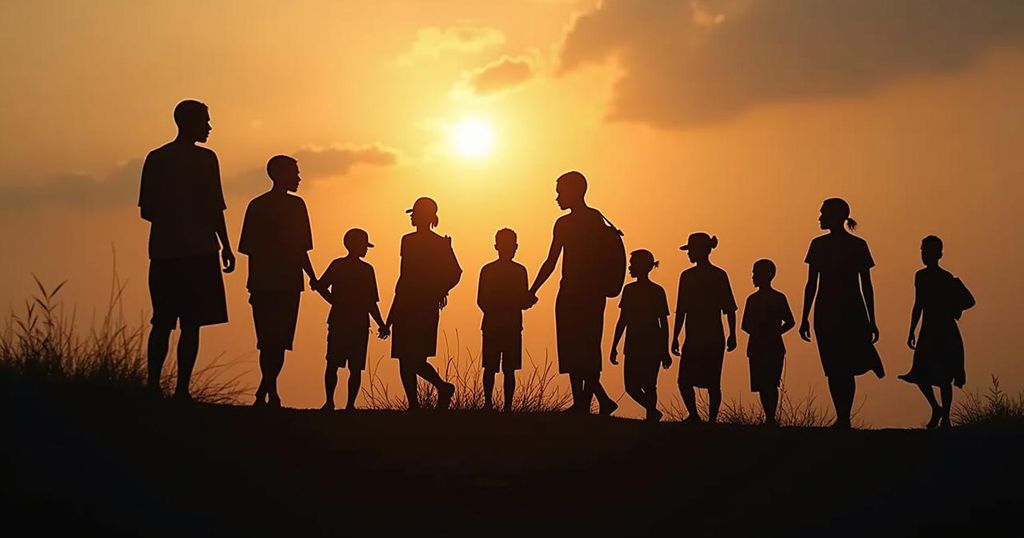The UN reports that nearly one million people have been displaced in the DRC in 2024 due to escalating violence. Volker Turk, UN human rights chief, describes a worsening humanitarian crisis linked to armed conflicts and exploitation of resources. The situation has resulted in over 6.4 million internally displaced persons and rising human rights abuses, including sexual violence and unfair death penalty laws.
In 2024, nearly one million individuals in the Democratic Republic of Congo (DRC) have been forcibly displaced due to ongoing conflicts, as stated by Volker Turk, the UN human rights chief. Turk expressed grave concern over the deteriorating conditions in the country and highlighted a distressing increase in human rights violations, particularly in the conflict-thorn eastern regions. He noted that the total number of internally displaced persons has surged to over 6.4 million, with 940,000 newly displaced this year alone, bringing to light the dire humanitarian crisis.
The Democratic Republic of Congo has been a focal point of humanitarian crises due to protracted conflicts fueled by various factors including weak governmental structures, external corporate interests in its rich natural resources, and the illegal trade of minerals. The country is home to ample natural resources such as valuable minerals and the second-largest rainforest globally. However, these resources have often exacerbated the plight of its citizens by inciting violence and poverty, thus leading to widespread human rights violations and displacement. The UN has raised alarms about the negative consequences of lifting the de facto moratorium on the death penalty, which has resulted in 128 death sentences since its retraction.
The current situation in the DRC highlights a critical intersection of human rights abuses, humanitarian crises, and the exploitation of natural resources. As violence escalates and more individuals are displaced, it is imperative for both national and international communities to address the root causes of these atrocities, promote accountability, and protect the rights of the affected populations. The UN’s role will be vital in monitoring these developments and advocating for effective intervention strategies.
Original Source: www.jamaicaobserver.com






